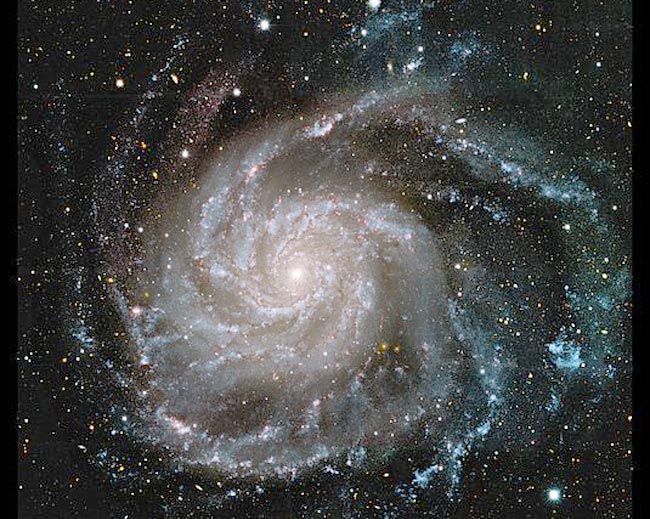Explanation: Why do many galaxies appear as spirals? A striking example is M101, shown above, whose relatively close distance of about 22 million light years allow it to be studied in some detail. Recent evidence indicates that a close gravitational interaction with a neighboring galaxy created waves of high mass and condensed gas which continue to orbit the galaxy center. These waves compress existing gas and cause star formation. One result is that M101, also called the Pinwheel Galaxy, has several extremely bright star-forming regions (called HII regions) spread across its spiral arms. M101 is so large that its immense gravity distorts smaller nearby galaxies.
1999 2000 2001 2002 2003 2004 2005 2006 2007 2008 2009 2010 2011 2012 2013 2014 2015 2016 2017 2018 2019 2020 2021 2022 2023 2024 2025 |
Yanvar' Fevral' Mart Aprel' Mai Iyun' Iyul' Avgust Sentyabr' Oktyabr' Noyabr' Dekabr' |
NASA Web Site Statements, Warnings, and Disclaimers
NASA Official: Jay Norris. Specific rights apply.
A service of: LHEA at NASA / GSFC
& Michigan Tech. U.
|
Publikacii s klyuchevymi slovami:
M 101 - Pinwheel Galaxy - spiral arms - spiral'naya galaktika - galaktika Bulavochnoe Koleso
Publikacii so slovami: M 101 - Pinwheel Galaxy - spiral arms - spiral'naya galaktika - galaktika Bulavochnoe Koleso | |
Sm. takzhe:
Vse publikacii na tu zhe temu >> | |
